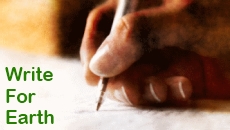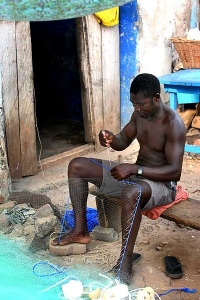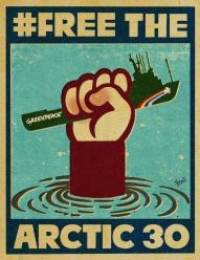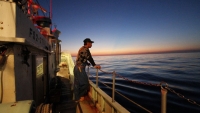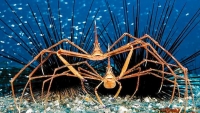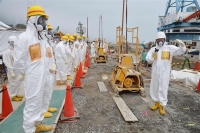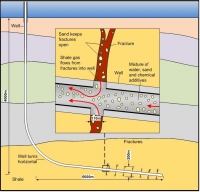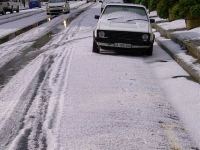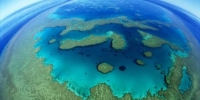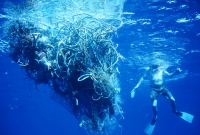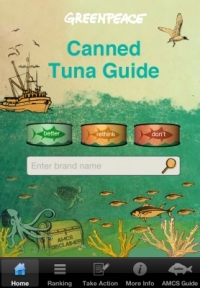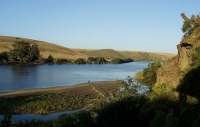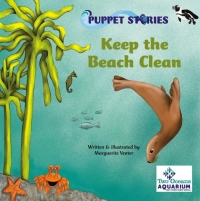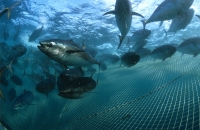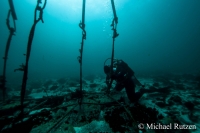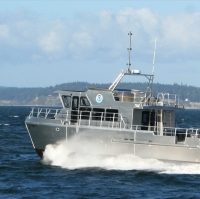By 2100, the world’s oceans will be warmer and more acidic, with less dissolved oxygen and lower yields of fish and shellfish. And that will make life very difficult for up to 870 million of the world’s poorest people who rely on the sea for food, jobs and income.
Appeals for bail by lawyers for Phil Ball and Kieron Bryan, both British citizens, were refused last week by the Regional Court of Murmansk.
Human influence on the climate system is clear. This is evident in most regions of the globe, a new assessment by the Intergovernmental Panel on Climate Change (IPCC) concludes.
Over the next five years, the U.S. Navy plans to conduct a series of training exercises in coastal waters resulting in a "significant impact" on marine life as a result of the use of underwater explosives and sonar. These "war games" are intended to improve military readiness in the event of a real conflict.
Water contaminated with radiation is flowing out into the Pacific Ocean from a harbor at the Fukushima No. 1 nuclear plant despite assurances from Prime Minister Shinzo Abe that it has been "completely blocked."
Which beach will you be cleaning up on International Coastal Clean-Up day, which is Saturday, 21 September this year?
Third-generation fisherman Fumio Suzuki sets out into the Pacific Ocean every seven weeks, not to catch fish to sell, but to catch fish that can be tested for radiation.
According to a new study, rising levels of carbon dioxide are harming all forms of marine life because the oceans are acidifying as they absorb the gas.
Contaminated water with dangerously high levels of radiation is leaking from a storage tank at Japan's crippled Fukushima nuclear plant, the most serious setback to the clean up of the worst nuclear accident since Chernobyl.
PetroSA wants to explore the possibility of hydraulic fracturing to improve the productivity of three of the development wells currently being drilled 110km offshore of Mossel Bay.
On 26 June 2013 CO2 in the atmosphere rocketed to 400 parts per million, partly due to emissions caused by human actions.
Australia’s legendarily irresponsible mining industry has a new plan: while the planet faces catastrophic climate change, build the world’s largest coal mining complex, and then build a shipping lane to that port straight through the greatest ecological treasure we have - the Great Barrier Reef!
Ocean conservation pioneer Dr. Carl Safina and an international team of scientists, artists and educators recently set forth on a marine debris expedition to the giant rotating ocean current that is the North Pacific Gyre.
Tuna is in trouble. It's is one of the world’s favourite fish, and the staple protein of millions, but it is overfished globally.
Rapid urbanisation, climate change and businesses are impacting negatively on the Western Cape environment, said officials this week in a public report highlighting these challenges.
On Saturday 22 June 2013 at 09h00 the Two Oceans Aquarium will launch the first puppet story book titled “Keep the beach clean.” It is based on the popular puppet show by the same name which is performed daily in the AfriSam Children’s Play Centre in the Aquarium.
Are the words “dolphin-friendly” or “dolphin-safe” on local tuna cans truthful, considering that most of our canned tuna seems to be imported from the Philippines, or Thailand?
A team of Stellenbosch University researchers has developed an eco-friendly and probably highly effective shark barrier, known as 'Sharksafe.' This is an alternative for shark nets which result in the death of thousands of sharks and other sea animals every year.
The CSIR (Council for Scientific and Industrial Research), a leading scientific and technology research organisation, are seeking two motivated and enthusiastic Doctoral Students to conduct research about ocean pollution and illegal fishing.



